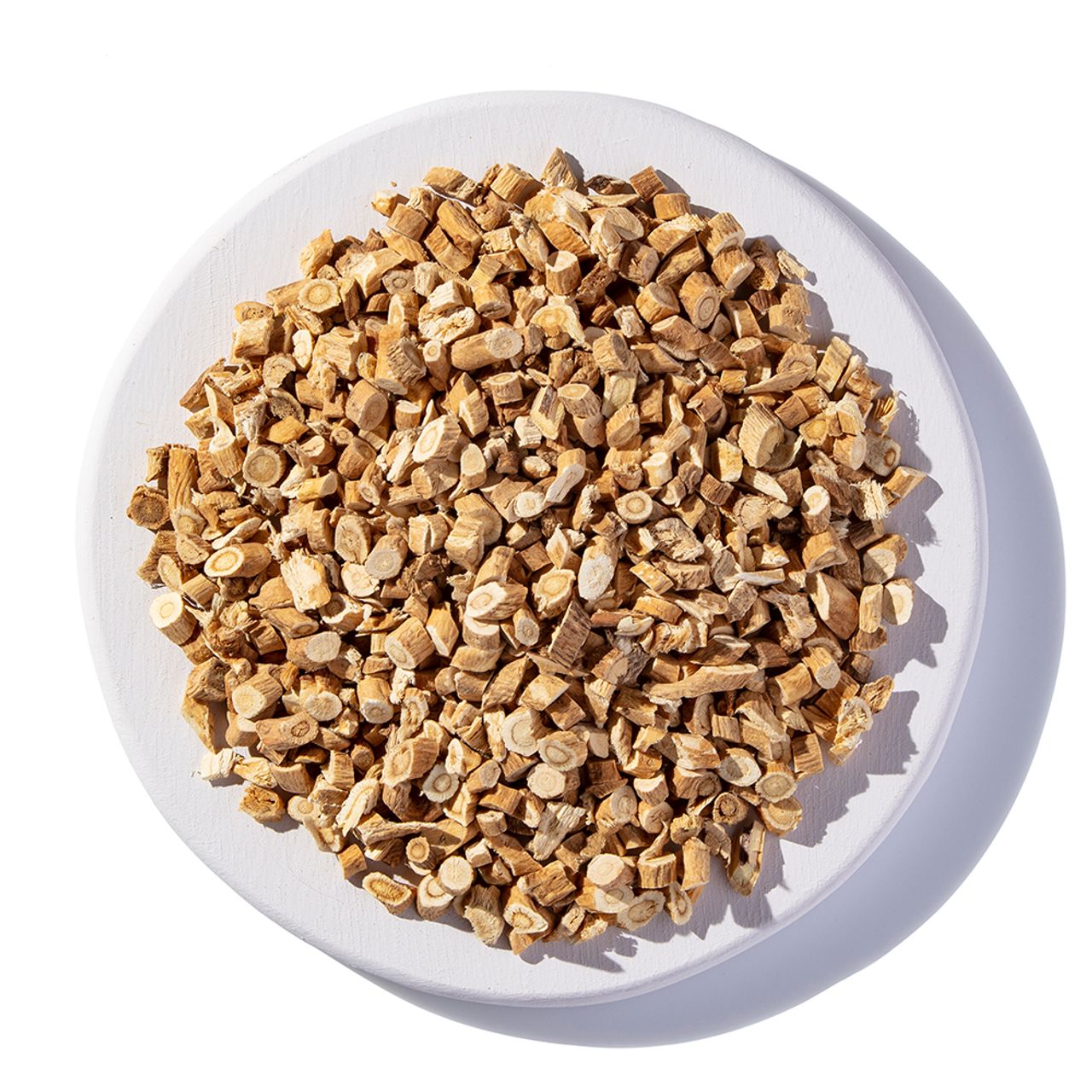ASTRAGALUS ROOT CUT & SIFT ORGANIC
Astragalus Root
Astragalus, known traditionally as Huang Qi, is a member of the Milk Vetch or Fabaceae family. Native to China and North Korea, astragalus is deeply rooted in traditional Chinese medicine. Astragalus root powder is mildly sweet and earthy. You can infuse it in tea, blend it in smoothies, or sprinkle it on meals as a simple way to enhance your wellness routine.
Astragalus Root is one of many herbs known by several names. Astragalus membranaceus and Astragalus propinquus are both Latin names for the unique plant more commonly known as Astragalus root. Astragalus comes from the pea family, and has been used for thousands of years in traditional Chinese medicine. Astragalus herb is thought to boost overall vitality. In Chinese medicine it has been historically used to promote healing and reduce fatigue.*
Astragalus Root is part of the largest genus of the Fabaceae family, with over two thousand members of that large and varied grouping. Astragalus membranceus have an alternate pattern of leaves on each stem. The flowers of the herb are built to attract the attention of pollinators, such as bees or hummingbirds. The flowers of are arranged in patterns of five sepals and five petals. The ovary inside the herb's flower develops into what is recognizably a legume. The roots of organic Astragalus membranaceus have rhizomes within their nodules. These rhizomes can assimilate nitrogen from the atmosphere and put it back into the ground where the plant is growing, which helps to replenish that important nutrient back into the soil.
Astragalus is a plant that can be taken as a supplement or made into liquid extracts, teas, and powders. Health benefits of astragalus root may include boosting your immune system and improving kidney or heart function.
It has many purported health benefits, including immune-boosting, anti-aging and anti-inflammatory effects. Astragalus is believed to prolong life and used to treat a wide variety of ailments, such as fatigue, allergies and the common cold. It’s also used against heart disease, diabetes and other conditions.
Possible benefits of Astragalus include:
- boost immune system
- improving heart function
- may alleviate side effects of chemotherapy
- may help control blood sugar levels
- may improve kidney function
- improve symptoms of chronic fatigue
- anti-cancer effects
- improved seasonal allergy symptoms

